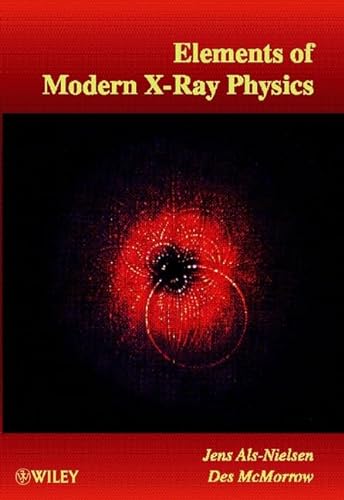Articles liés à Elements of Modern X-Ray Physics

L'édition de cet ISBN n'est malheureusement plus disponible.
Synopsis
The availability of intense X--ray beams from synchroton storage rings has revolutionised the field of X--ray science. This is illustrated by the cover pictures: Von Laue's first observation of X--ray diffraction from a single crystal of ZnS used an exposure time of around 1000 seconds, whereas the diffraction from a single crystal of myoglobin using modern X--ray synchroton radiation was obtained within the duration of a single pulse lasting only 0.00000000001 seconds. In this book the basics of X--ray physics, as well as the completely new opportunities offered by synchrotron radiation, are viewed from a modern perspective. The style of the book is to develop the basic physical principles without obscuring them in too much mathematical rigour. This approach should make the book attractive to the wider community of material scientists, chemists, biologists and geologists, as well as to physicists who use synchrotron radiation in their research. The book should be useful both to students taking course in X--rays, and to more experienced professionals who have the desire to extend their knowledge into new areas.
Les informations fournies dans la section « Synopsis » peuvent faire référence à une autre édition de ce titre.
Quatrième de couverture
The availability of intense X–ray beams from synchrotron storage rings has revolutionised the field of X–ray science. This is illustrated by the cover pictures: von Laue′s first observation of x–ray diffraction from a single crystal of ZnS (below) used an exposure time of around 1000 seconds, whereas the diffraction from a single crystal of myoglobin using modern x–ray synchrotron radiation (front cover) was obtained within the duration of a single pulse lasting only 0.00000000001 seconds.
In this book the basics of x–ray physics, as well as the completely new opportunities offered by synchrotron radiation, are viewed from a modern perspective. The style of the book is to develop the basic physical principles without obscuring them in too much mathematical rigour. This approach should make the book attractive to the wider community of material scientists, chemists, biologists and geologists, as well as to physicists who use synchrotron radiation in their research. The book should be useful both to students taking courses in x–rays, and to more experienced professionals who have the desire to extend their knowledge into new areas.
Revue de presse
"...presents the basics of modern X–ray physics and considers new opportunities offered by synchrotron radiation." ( SciTech Book News, Vol. 25, No. 4, December 2001)
"...will be a welcome addition to the bookshelves of synchrotron?radiation professionals and students alike.... The text is now my personal choice for teaching x–ray physics." (Physics Today, March 2002)
Les informations fournies dans la section « A propos du livre » peuvent faire référence à une autre édition de ce titre.
- ÉditeurJohn Wiley & Sons Ltd
- Date d'édition2000
- ISBN 10 0471498572
- ISBN 13 9780471498575
- ReliureRelié
- Langueanglais
- Nombre de pages336
- Coordonnées du fabricantnon disponible
(Aucun exemplaire disponible)
Chercher: Créez une demandeVous ne trouvez pas le livre que vous recherchez ? Nous allons poursuivre vos recherches. Si l'un de nos libraires l'ajoute aux offres sur AbeBooks, nous vous le ferons savoir !
Créez une demande
